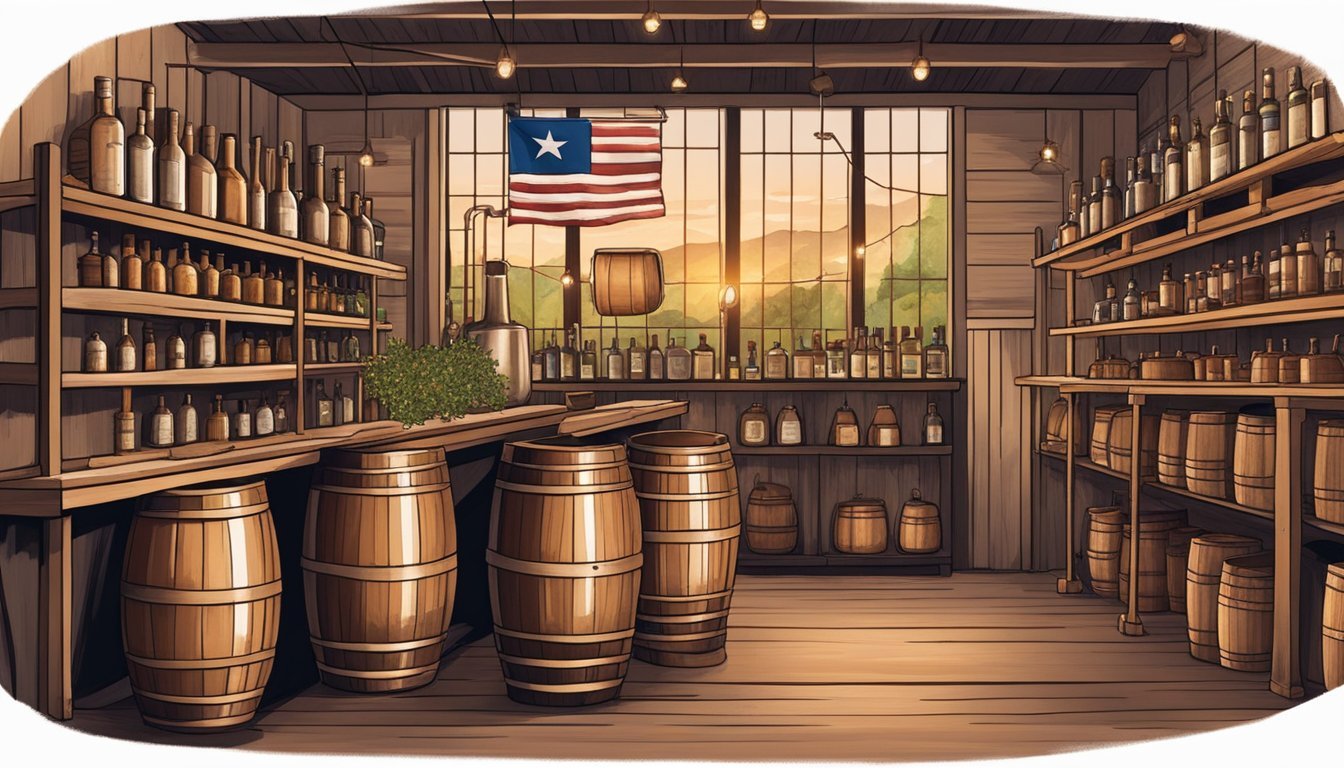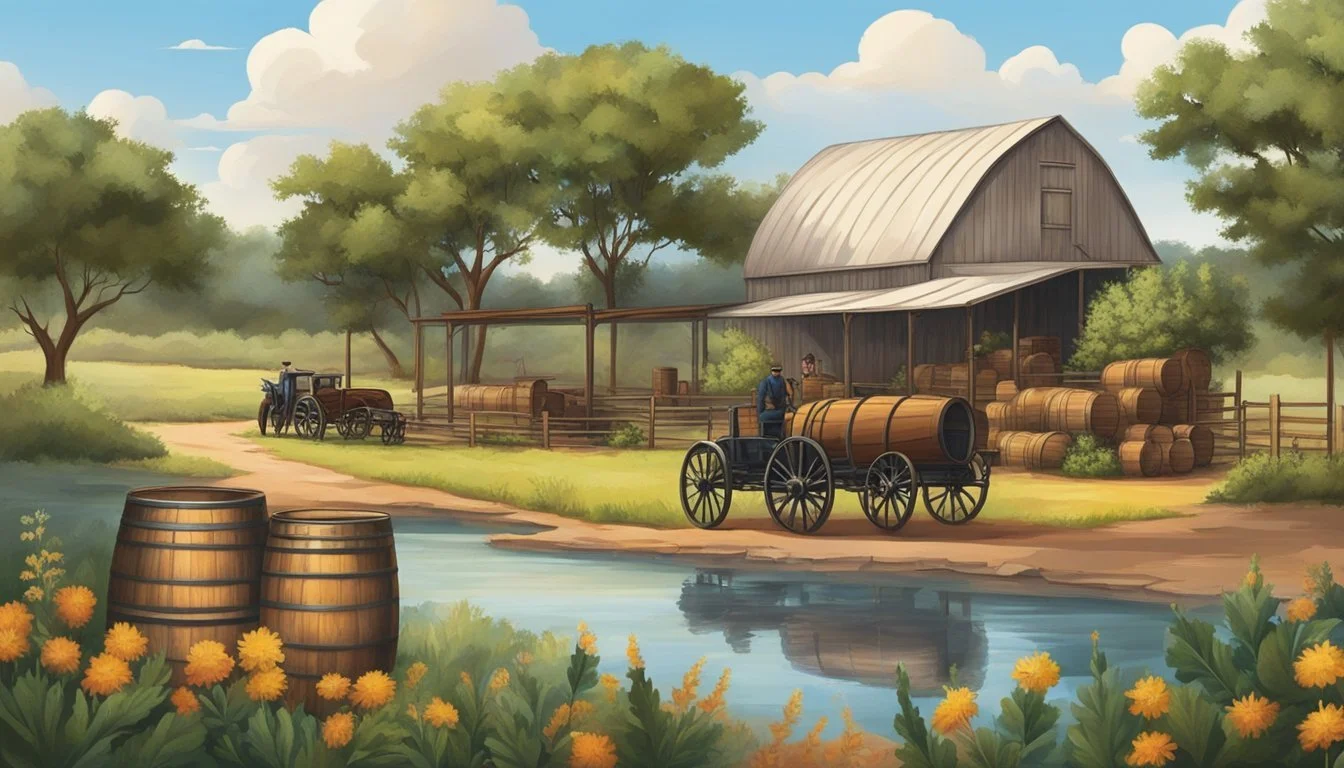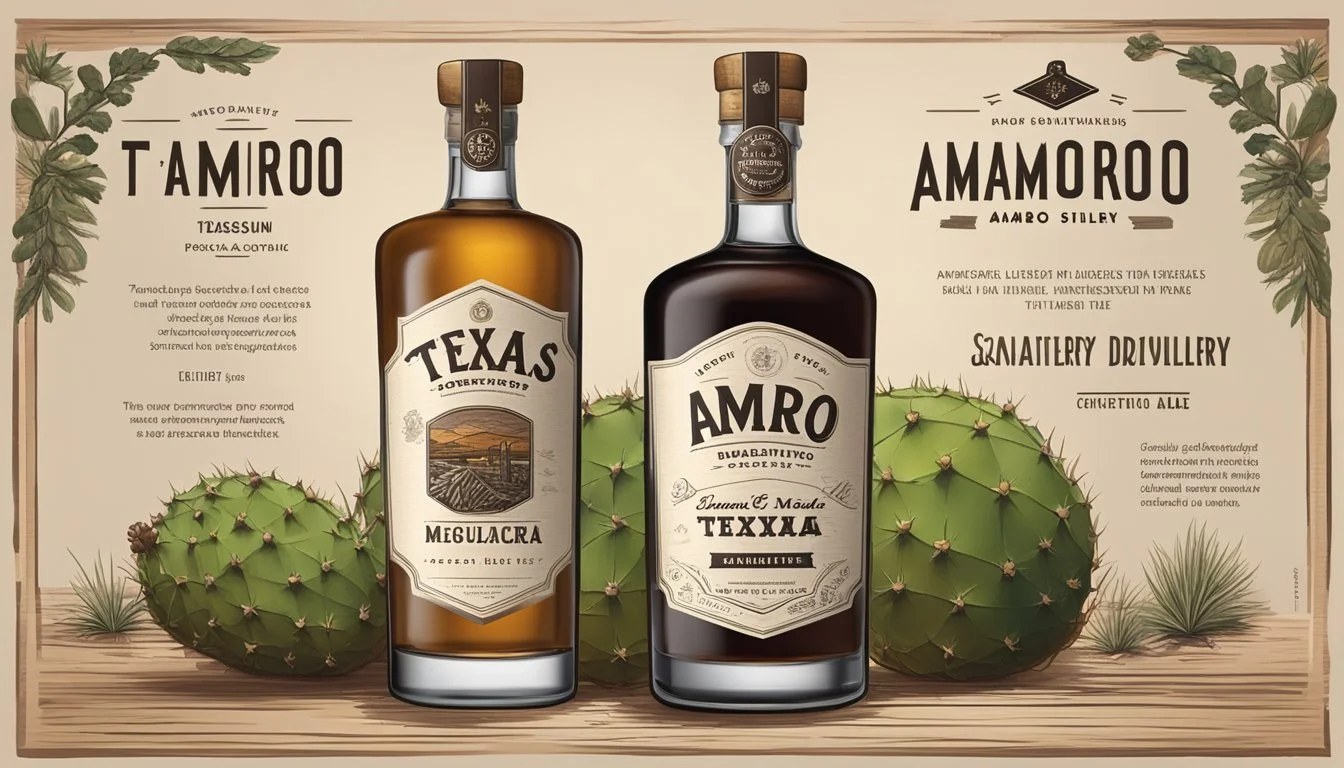The Rise of Texas-Made Amaro
Shifting Trends in American Craft Spirits
The craft spirits movement in Texas is taking a bold step into the world of amaro, traditionally an Italian herbal liqueur. Texas distilleries are cultivating a new frontier in the American-made amaro scene, constructing a unique bridge between Italian tradition and Texan innovation. These Texan amari, with their rich tapestry of local flavors and ingredients, are contributing to a wider appreciation and evolution of the category in the United States.
Revolution Spirits, based in Austin, is at the forefront of this movement with its distinctive amaro expressions. They have carved out a niche with products like Amico Amaro, which has challenged traditional perceptions and sparked conversations about what constitutes an authentic amaro. While some purists may argue that true amaro must be Italian, Texas-made amari are gaining recognition for their quality and creativity.
The presence of Texan amaro on cocktail menus is revolutionizing classic drinks, such as the Negroni, by infusing them with local character. This shift is not only testament to the growing prowess of Texas distilleries in the craft spirits industry but also reflective of an expanding consumer curiosity for regional and artisanal liquors. Texas-made amaro is not just a fleeting trend but a burgeoning segment of the stateside spirits market.
The Origins of Texas-Made Amaro
Texas, with its unique terroir, has seen the emergence of local amaro creations that elegantly fuse European heritage and traditions with the distinct qualities of the Lone Star State.
Historical Context
In recent years, Texas has entered a new chapter in spirits production, with distilleries like Treaty Oak Distilling at the forefront. Although amaro's roots are undeniably European, arising from the monastic traditions of Italy and various tonics across other European countries, the Texan iteration finds its origin much closer to the present day. Initially inspired by European recipes, the Texas amaro journey started with a bold step: marrying traditional European methods with regional ingredients.
Historically, amaro is known as a bittersweet liqueur with a base that might include neutral spirits, grape brandy, or wine. Texans saw an opportunity to carry forth this tradition and put their stamp on it. It's a telltale sign of the state's desire to innovate while paying homage to the rich European past.
Texas Terroir and Its Impact
Soil: Comprising of a diverse set of soil types, from sandy loams to red clays, Texas provides a complex foundation for botanicals.
Climate: The variable Texas climate that swings from dry heat to intense rainfalls adds stress to the plants, often intensifying their flavors.
Botanicals: The regional flora contributes distinct notes not found in European counterparts, including local herbs and citrus.
Embracing the term 'terroir', which refers to how a particular region's climate, soils, aspect, and overall growing conditions affect the taste of wine—or in this case, amaro—Texas distillers have creatively leveraged their environment to influence their amaro's character.
In essence, Texas-made amaro is a spirited testament to the state's capacity to absorb and transform a storied European beverage into something that is unequivocally Texan. By carefully selecting regional botanicals that thrive in the peculiar Texan terroir, distillers ensure each bottle encapsulates the essence of the state's diverse landscape.
Amaro Production in Texas
Texas distilleries have embraced the craft of producing Amaro, a traditionally Italian herbal liqueur, bringing local flair to this bitter botanical beverage.
Distillation Techniques
Texas amaro producers employ a mix of traditional and innovative distillation techniques to create their distinctive liqueurs. Distillation is a process revered for its ability to concentrate and purify the essence of the ingredients. In the Lone Star State, distillers meticulously control the distillation process to ensure a balance between the complex flavors and desired alcohol content. Some distilleries, like Revolution Spirits, have become known for their Texan take on Amaro, showcasing both an appreciation for the traditional methods and a willingness to experiment.
Local Ingredients Used
Texas amaros stand out due to their use of local and regional ingredients. Here's a brief overview:
Spices: Texas distillers often incorporate local spices that provide a unique profile characteristic of Texan terroir.
Citrus: Citrus fruits, particularly Texas grapefruits, are a common addition, lending a bright and tangy note to the liqueur's flavor profile.
Ingredient Role in Amaro
Texas Grapefruit Adds a vibrant citrusy bitterness
Regional Spices Contribute to the complex spice notes
These ingredients not only impart distinctive flavors but also anchor the amaro in its Texan roots, distinguishing it from its Italian counterparts and adding to the landscape of American craft spirits.
Key Players in the Texas Amaro Scene
Texas has become a hotbed for craft distilling, with a focus on incorporating local flavors. Amaro, a traditionally Italian herbal liqueur, is being redefined by Texan distilleries. Key players within this burgeoning scene include Treaty Oak Distilling, Balcones Distillery, and Ranger Creek Brewing & Distilling, each contributing unique profiles to this spirit category.
Treaty Oak Distilling
Established in 2006, Treaty Oak Distilling has been instrumental in the Texas amaro movement. Their innovation has led to the creation of Amaro, which showcases local botanicals. As one of the trailblazers, they pioneer using ingredients native to the Texas Hill Country, embodying a true Texan spin on the classic European liqueur.
Founder: Daniel Barnes
Notable Amaro: Treaty Oak Amaro
Approach: Integrates Texan botanicals for local flair
Balcones Distillery
Balcones Distillery is another significant contributor in the Texan amaro renaissance. Founded in 2008 by Chip Tate, Balcones takes pride in handcrafting amaro that reflects the terroir of Texas. They are renowned for bold flavors and meticulous attention to their craft, with dedication pouring from the Dr. Pepper town of Waco.
Signature Style: Robust with deep Texan roots
Noteworthy Product: Balcones Amaro
Contribution: Emphasis on artisanal, small-batch distilling
Ranger Creek Brewing & Distilling
Combining a brewery and a distillery, Ranger Creek Brewing & Distilling cross-utilizes their skills to produce diverse alcoholic beverages, including amaro. Located in San Antonio, their products echo the sentiments of Texas’ rich cultural tapestry. Co-founder Dennis Rylander brings a passion for both brewing and distilling to their innovative operations.
Unique Offering: Craft spirits with brewing insights
Product Highlight: Ranger Creek’s Texas Amaro
Key Individual: Dennis Rylander, co-founder and distiller
The movers and shakers in the Texas amaro scene are crafting a distinct identity for their liqueurs, proudly rooted in Texas culture and flavors.
Legal and Commercial Aspects
In the burgeoning market of Texas-made Amaro, compliance with legal requirements for domestic and international sales is paramount. Producers must navigate a complex landscape of regulations while capitalizing on the state's conducive business environment to stimulate growth.
Compliance with GDPR for International Sales
Texas distillers operating in the Amaro sector are obligated to adhere to the General Data Protection Regulation (GDPR) when conducting sales in the European Union. They must ensure that customer data collected during transactions is processed and stored according to GDPR standards. This includes obtaining explicit consent from individuals, providing clear privacy notices, and implementing data protection measures.
Explicit Consent: Texas Amaro producers must obtain customers' clear and affirmative consent to process their personal data.
Privacy Notices: Transparent privacy notices must inform customers about how their data will be used.
Data Protection: Robust security processes must be in place to protect customer data from breaches.
The Economic Impact and Growth
The Texas wine industry's contribution of over $1.83 billion to the state's economy and the attraction of 1.5 million wine-related tourists offer an insightful precedent for the potential economic impact of Texas-made Amaro. Current figures suggest there are opportunities for spirited growth amongst the 48 distilleries within the state, drawing parallels to the success from the wine segment.
Potential Economic Impact: As with the wine industry, local craft distillers can significantly contribute to the state's economy.
Tourism: Following wine tourism's success, Texas-made Amaro may also become a draw for spirits enthusiasts and contribute to tourism.






